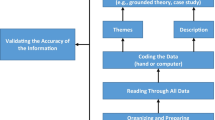Abstract
Smart ICT innovation like flipped classroom pedagogy is freeing up face-to-face in-class teaching system for additional problem based learning activities in the class. But the focus of flipped classrooms is more on the theory side with related lab work in science subjects further getting marginalized. In this paper we are proposing Flipped Labs - a method of pedagogy premeditated as a comprehensive online lab learning environment outside the class room by means of tutorials, theory, procedure, animations and videos. Flipped labs have the potential to transform the traditional methods of lab teaching by providing more lab time to students. An ICT educational innovation like flipped labs will not occur in isolation in an environment where two interrelated potential adopters namely teachers and students influence each other and both have to adopt for the innovation to be successful. In this paper we provide the theoretical framework for the diffusion and the adoption patterns for flipped labs using theory of perceived attributes and take into account the important intergroup influence between teachers and students. The results of this analysis indicated that Relative Advantage, Compatibility, Ease of Use, Teacher Influence and Student Influence were found to be positively related to acceptance of flipped labs.
Access this chapter
Tax calculation will be finalised at checkout
Purchases are for personal use only
Preview
Unable to display preview. Download preview PDF.
Similar content being viewed by others
References
Lage, M.J., Platt, G.J., Treglia, M.: Inverting the classroom: A gateway to creating an inclusive learning environment. Journal of Economic Education 31(1), 30–43 (2000), doi:10.1080/00220480009596759
Tucker, B.: The Flipped Classroom. Education Next 12(1) (2012)
Mazur, E.: Peer Instruction (2012), http://mazur.harvard.edu/research/detailspage.php?rowid=8 (retrieved)
Clark, D.: 10 Reasons to Dump Lectures (December 18, 2007), http://donaldclarkplanb.blogspot.ca/2007/12/10reasons-to-dump-lectures.html (retrieved)
Strayer, J.F.: The effects of the classroom flip on the learning environment: A comparison of learning activity in a traditional classroom and a flip classroom that used an intelligent tutoring system (2008)
Day, J.A., Foley, J.D.: Evaluating a Web Lecture Intervention in a Human– Computer Interaction Course. IEEE Transactions on Education 49(4), 420–431 (2006), doi:10.1109/TE.2006.879792
Toto, R., Nguyen, H.: Flipping the Work Design in an Industrial Engineering Course. In: Proceedings of the 39th ASEE/IEEE Frontiers in Education Conference, San Antonio, Texas, USA (October 2009)
Revere, L., Kovach, J.V.: Online Technologies for Engaging Learners: A Meaningful Synthesis for Educators. Quarterly Review of Distance Education 12(2), 113–124 (2011)
Copley, J.: Audio and video podcasts of lectures for campus-based students: production and evaluation of student use. Innovations in Education & Teaching International 44(4), 387–399 (2007), doi:10.1080/14703290701602805
Guskey, T.R.: Closing Achievement Gaps: Revisiting Benjamin S. Bloom’s “Learning for Mastery”. Journal of Advanced Academics 19(1), 8–31 (2007)
Nedungadi, P., Raman, R., McGregor, M.: Enhanced STEM learning with Online Labs: Empirical study comparing physical labs, tablets and desktops. In: 2013 IEEE Frontiers in Education Conference, pp. 1585–1590. IEEE (2013)
Raman, R., Nedungadi, P., Ramesh, M.: Modeling Diffusion of Tabletop for Collaborative Learning Using Interactive Science Lab Simulations. In: Natarajan, R. (ed.) ICDCIT 2014. LNCS, vol. 8337, pp. 333–340. Springer, Heidelberg (2014)
Karmeshu, R.R., Nedungadi, P.: Modeling diffusion of a personalized learning framework. Educational Technology Research and Development 60(4), 585–600 (2012)
Rogers, E.M.: Diffusion of innovations, 5th edn. Free Press, New York (2003)
Bass, F.M.: A new product growth for model consumer durables. Management Science 15, 215–227 (1969)
Karmeshu, Goswami, D.: Stochastic evolution of innovation diffusion in heterogeneous groups: Study of life cycle patterns. IMA Journal of Management Mathematics 12, 107–126 (2001)
Author information
Authors and Affiliations
Corresponding author
Editor information
Editors and Affiliations
Rights and permissions
Copyright information
© 2015 Springer International Publishing Switzerland
About this paper
Cite this paper
Raman, R. (2015). Flipped Labs as a Smart ICT Innovation: Modeling Its Diffusion among Interinfluencing Potential Adopters. In: El-Alfy, ES., Thampi, S., Takagi, H., Piramuthu, S., Hanne, T. (eds) Advances in Intelligent Informatics. Advances in Intelligent Systems and Computing, vol 320. Springer, Cham. https://doi.org/10.1007/978-3-319-11218-3_55
Download citation
DOI: https://doi.org/10.1007/978-3-319-11218-3_55
Publisher Name: Springer, Cham
Print ISBN: 978-3-319-11217-6
Online ISBN: 978-3-319-11218-3
eBook Packages: EngineeringEngineering (R0)




